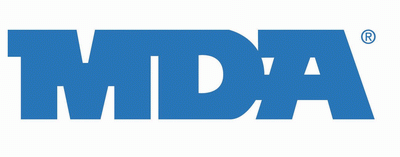Battle of Britain
Posted: Wednesday, July 18, 2012 by Travis Cody in
By the summer of 1940, Hitler's Blitzkrieg across Europe had forced the
evacuation of over 300,000 French and British troops at Dunkirk. Paris
had fallen, the the majority of western Europe lay under Nazi
occupation. Hitler's generals began consolidating their hold and
planning for an invasion of Britain, which would begin with the
destruction of the Royal Air Force.
The Battle of Britain hinged on air superiority. Britain's forces had to retain it and Germany had to gain it in order to launch Operation Sea Lion, which was the name given to the plan to invade England by sea and with airborne troops.
The German Luftwaffe included 2.550 aircraft, most notably the Messerschmitt Bf 109E and Bf 110C fighters. Initially the RAF relied on the Hurricane MkI and Spitfire Mk I, putting a little less than 2,000 aircraft into service. Although the Luftwaffe fighters were faster, the British had access to high octane fuel to increase power.
The battle raged over the UK from mid July through the end of October 1940. Luftwaffe casualties included nearly 2,700 killed, 967 captured, and more than 600 missing. The British destroyed nearly 1,900 aircraft. The RAF lost 544 killed, 422 wounded, and over 1,500 aircraft destroyed.
The efforts of The Few, as the British forces are remembered, ultimately made Hitler realize that an invasion of the Isle would be lengthy and costly, with the outcome uncertain. Nazi strategies were altered from direct fighter contact to Blitz bombing of British cities.
Although the battle was a decisive victory for the RAF over the Luftwaffe, it was still only 1940. There were still five more years of hard fighting and suffering, in Britain and across the globe.
But the efforts of The Few, and the hardiness of the British people in the face of the Blitz bombings, proved that the Germans could be turned away from an objective. Victory was possible.
The Battle of Britain hinged on air superiority. Britain's forces had to retain it and Germany had to gain it in order to launch Operation Sea Lion, which was the name given to the plan to invade England by sea and with airborne troops.
The German Luftwaffe included 2.550 aircraft, most notably the Messerschmitt Bf 109E and Bf 110C fighters. Initially the RAF relied on the Hurricane MkI and Spitfire Mk I, putting a little less than 2,000 aircraft into service. Although the Luftwaffe fighters were faster, the British had access to high octane fuel to increase power.
The battle raged over the UK from mid July through the end of October 1940. Luftwaffe casualties included nearly 2,700 killed, 967 captured, and more than 600 missing. The British destroyed nearly 1,900 aircraft. The RAF lost 544 killed, 422 wounded, and over 1,500 aircraft destroyed.
The efforts of The Few, as the British forces are remembered, ultimately made Hitler realize that an invasion of the Isle would be lengthy and costly, with the outcome uncertain. Nazi strategies were altered from direct fighter contact to Blitz bombing of British cities.
Although the battle was a decisive victory for the RAF over the Luftwaffe, it was still only 1940. There were still five more years of hard fighting and suffering, in Britain and across the globe.
But the efforts of The Few, and the hardiness of the British people in the face of the Blitz bombings, proved that the Germans could be turned away from an objective. Victory was possible.
"Never in the field of human conflict was so much owed by so many to so few." Winston Churchill



















As a British citizen I am immensely proud and grateful to those 'few'.